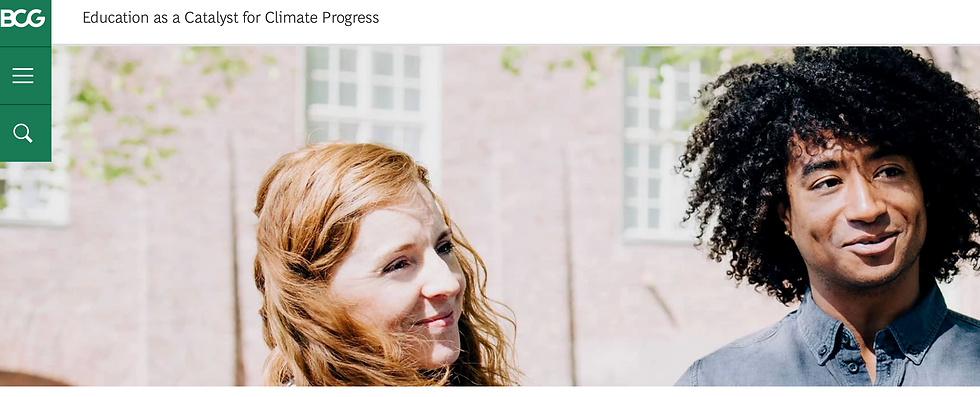Empowering the next Generation: The Imperative of cultivating student activists
- Chase Glazier

- Sep 22, 2023
- 3 min read

In every great societal shift, from the Civil Rights Movement to the fight against apartheid, young activists have been at the helm. They've been the dreamers, the doers, and the relentless fighters against the status quo. Today, as we grapple with the overwhelming challenges of climate change, systemic racism, and economic disparities, the clarion call for student activists is more pressing than ever. We must not only support these budding changemakers; we must passionately champion their cause.
Imagine the transformative power of an entire generation, knowledgeable about the issues, equipped with the tools for change, and burning with the fire of conviction. A generation that, instead of waiting for solutions, becomes the solution itself. That's the potential we have with our students. Yet, while the raw passion is there, the pathway and guidance often aren't. We, the educators, parents, and society at large, must rectify this oversight.
Many argue that students should focus on their studies, remain insulated from the world's problems until they are 'old enough' to understand. But when is 'old enough'? When they've graduated? When they've secured a job? By then, societal complacency has often set in. The truth is, they're already affected. From climate-induced natural disasters disrupting their communities to witnessing racial and economic injustices on their streets and screens, the challenges of our time are already shaping their lives. To ask them to wait is to tell them to be passive observers of their destinies.
Instead, we should be teaching our students to question, to challenge, and to act. The same energy they pour into their academics, sports, or arts can be channeled into activism. To do this, schools must evolve. Classrooms should be incubators of critical thinking and places where global problems are dissected and discussed. Through open dialogue, students can be guided to form their own opinions, fostered in a safe environment that values diversity of thought.
Incorporating activist projects into the curriculum can further bolster this. Imagine a biology project where students, understanding the decimation of bee populations, build community bee sanctuaries. Or a history lesson that doesn't just teach about past civil rights movements but asks students to identify and address systemic issues in their communities. The skills they learn such as collaboration, communication, and critical thinking are essential life skills, as valuable as any mathematical formula or literary analysis.
However, it's crucial to understand that activism isn't just about protests and petitions. It's also about the small, everyday actions that bring about societal shifts. It's choosing sustainable products, supporting marginalized communities, or amplifying voices that often go unheard. By teaching our students that every action, no matter how small, has the potential for change, we instill in them a sense of agency that will stay with them for life.
Critics often belittle the efforts of student activists, dismissing them as naïve or uninformed. They argue that these students, with their impassioned pleas and fiery speeches, don't understand the 'real world'. But perhaps it's the critics who don't understand. Maybe they've forgotten the enthusiasm of youth, the belief that change is not just possible but essential. By doubting our students, we diminish their power.
But when empowered, these young activists can move mountains. We've seen it with Malala Yousafzai's fight for girls' education, Greta Thunberg's relentless battle against climate change, and Emma González's passionate advocacy for gun control. These are but a few names in a sea of young individuals making waves in their communities, countries, and even on global stages. Their actions are proof that age is not a barrier to effecting change.
We have all seen it firsthand, when students become activists, they inspire those around them. They bring discussions to the dinner table, challenging and enlightening even the adults in their lives. In this way, the ripple effect of their activism reaches far beyond school walls, creating communities that are more informed, empathetic, and ready for action.
In the words of Margaret Mead, "Never doubt that a small group of thoughtful, committed citizens can change the world; indeed, it's the only thing that ever has." Today's students are not just the leaders of tomorrow; they are the changemakers of today. If we truly want a brighter, more just, and sustainable future, we must passionately support the rise of student activists. The time for change is now, and our students are more than ready to lead the charge.





Comments